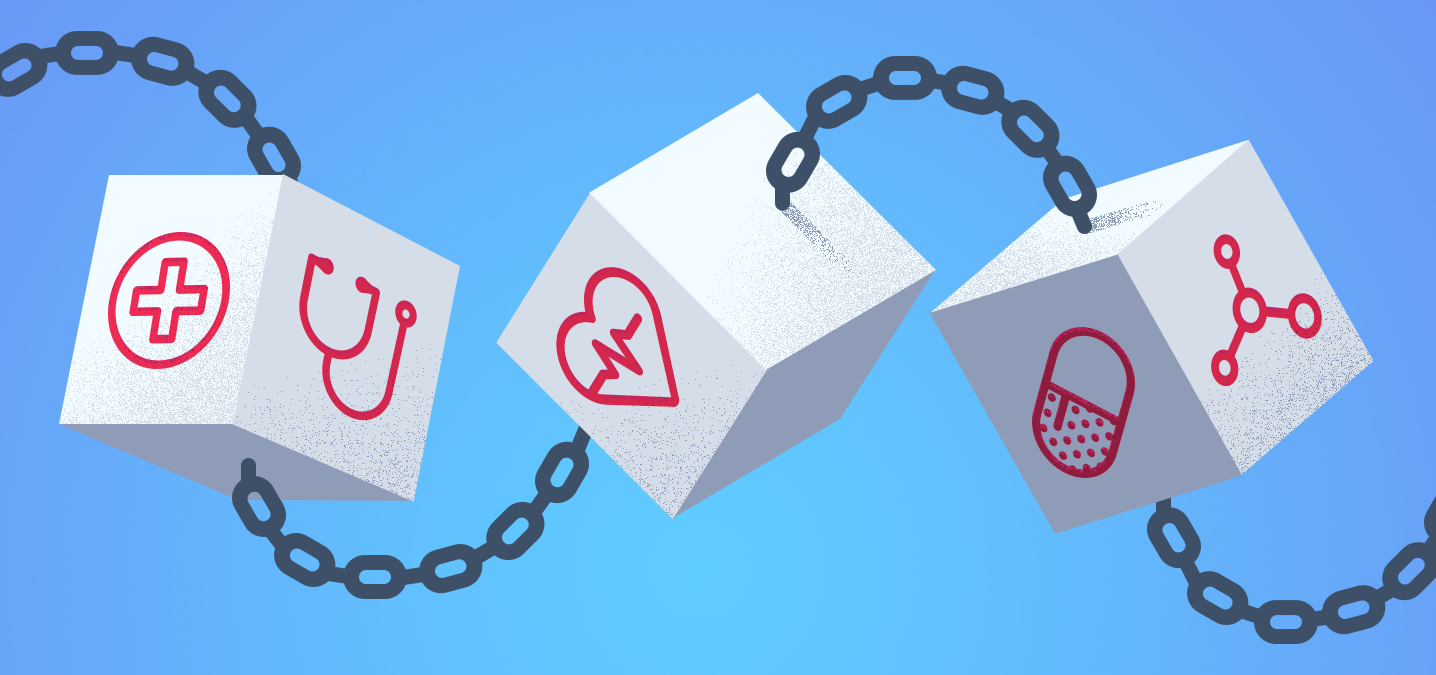Blockchain in Healthcare: Enhancing Data Security and Safeguarding Patient Privacy

The healthcare industry is undergoing a transformative journey with the integration of blockchain technology. Blockchain, the decentralized and tamper-resistant ledger, holds immense potential to address critical issues in healthcare, particularly concerning data security and patient privacy. This article explores the applications of blockchain in healthcare and its impact on securing sensitive health information.

Securing Electronic Health Records (EHRs):
Blockchain ensures the integrity and security of Electronic Health Records (EHRs) by creating a decentralized and unalterable ledger. Patient data stored on the blockchain is cryptographically secured, reducing the risk of unauthorized access, data breaches, and tampering.
Interoperability and Data Exchange:
Blockchain facilitates seamless interoperability and data exchange among different healthcare providers and systems. Patients can have a unified and secure health record accessible by authorized entities, eliminating the need for redundant data entry and enhancing care coordination.
Patient Identity Management:
Blockchain technology helps in creating a secure and verifiable patient identity. By storing patient identity information on the blockchain, healthcare providers can ensure accurate patient identification, reducing the risk of medical errors and fraud.
Drug Traceability and Supply Chain Management:
Blockchain enhances transparency and traceability in pharmaceutical supply chains. It helps in tracking the entire lifecycle of drugs, from manufacturing to distribution, ensuring the authenticity of medications and preventing the infiltration of counterfeit drugs into the market.
Consent Management:
Blockchain enables patients to have more control over their data through smart contracts. Patients can grant and revoke access to their health information securely using blockchain-based consent mechanisms, ensuring that data is shared only with authorized parties.
Clinical Trials and Research Data Integrity:
Blockchain ensures the integrity of data in clinical trials and research by providing an immutable record of data points. This enhances the reliability of research findings, reduces data manipulation risks, and promotes trust in the research community.
Billing and Claims Processing:
Blockchain streamlines billing and claims processing by creating a transparent and auditable record of transactions. This can help reduce billing errors, fraud, and administrative overhead in the healthcare payment ecosystem.
Cybersecurity and Mitigating Data Breaches:
Blockchain's decentralized and cryptographic nature makes it resistant to cyber threats. It reduces the risk of data breaches and unauthorized access by eliminating central points of vulnerability, enhancing the overall cybersecurity posture of healthcare systems.
Blockchain technology is proving to be a game-changer in the healthcare industry, offering solutions to long-standing challenges related to data security and patient privacy. As the adoption of blockchain in healthcare continues to grow, patients and healthcare providers can benefit from a more secure, interoperable, and patient-centric healthcare ecosystem. The emphasis on data integrity, transparency, and decentralized control positions blockchain as a key enabler of a more efficient and secure healthcare landscape.